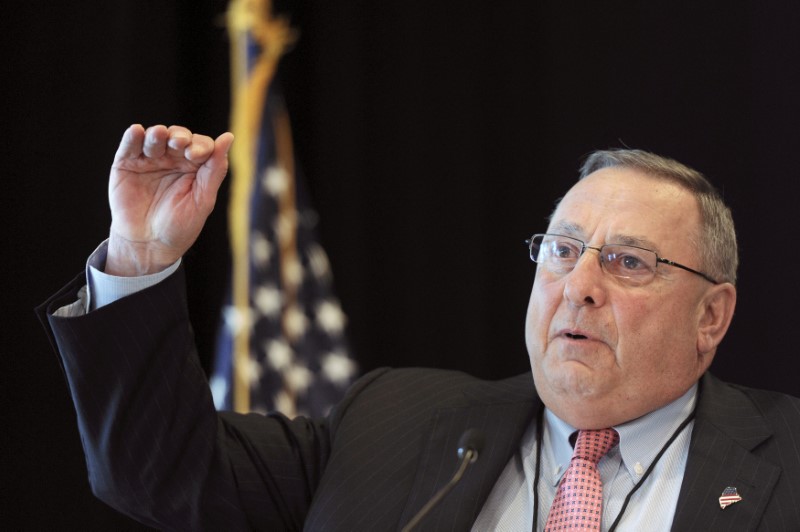By Scott Malone
(Reuters) - Maine's two most prominent Republicans grabbed headlines this week with political moves that were widely different in style and substance, which some insiders said could risk the party's stature in the northeastern state.
U.S. Senator Susan Collins won praise from Democrats for saying she would not vote for a White House-backed healthcare reform bill while Governor Paul LePage revved up his conservative base by saying he was ready for a state government shutdown if legislators did not agree with his calls for budget cuts.
The move by Collins, a four-term moderate, was in keeping with Maine's reputation for producing independent-minded legislators willing to buck their party's leadership in Washington. That tradition was challenged by LePage, who first ran for office in 2010 on a wave of populist Tea Party support and won two three-way races with less than a majority of the vote.
"What you see is a battle for the heart and soul of the Republican party in Maine," said David Farmer, a Democratic political consultant who worked on the 2014 campaign of LePage's Democratic challenger. "Is it going to be the belligerent, angry Governor LePage or is it going to be the thorough and pragmatic but still conservative Senator Collins?"
Republican lobbyist and political operative Lance Dutson largely agreed.
"It's an ideological tipping point," said Dutson, who worked on Collins' 2014 reelection campaign, which she won with 68 percent of the vote.
Maine has a tradition of successful third-party candidates, notably independent U.S. Senator Angus King, and has more unaffiliated voters than those registered as either Democrats or Republicans.
"In the long run, the Collins model has proven itself," Dutson said. "You can't be an orthodox Republican and talk only to Republicans like LePage and win as much support."
Collins and LePage have publicly disagreed over President Donald Trump, whose brusque style and populist approach is similar to the Maine governor's. LePage was an early supporter of Trump's White House campaign. When Collins said last year that she would not vote for the New York real estate developer, LePage told local media he was "not a Susan Collins fan."
The chair of the state's Republican party saw no downside to the diverging style and politics of the two, saying the wide gap represented by the two was an illustration of the party's wide appeal in Maine.
"We're an inclusive party, we have strong conservatives, libertarians and we have our moderates, but we're a party, we're a party of reform and we are going to stick together," said Demi Kouzounas, a dentist who was elected as the party chair in January. "We support both of them strongly."
STYLE AND SUBSTANCE
The gap between the two was as clear in the style of their comments as it was in its substance.
Collins said she had "serious concerns" about the Senate bill backed by Trump as a replacement to the Affordable Healthcare Act, known as Obamacare. After the Congressional Budget Office estimated that the measure would cause 22 million Americans to lose their healthcare insurance over the next decade, Collins became one of a handful of Senate Republicans to say they could not support the bill in its current form, leading to Tuesday's decision to delay the vote.
Also on Tuesday, LePage told a radio interviewer that he was ready to shut down the state government ahead of a holiday weekend that is crucial for businesses catering to tourists, if Democratic lawmakers would not agree to $145 million in spending cuts in the state's next two-year budget of roughly $7 billion.
"I'm the worst guy in the world to play chicken with, because I don't veer either way," LePage told WMOV radio. "If there's a collision to be had, it's coming."
The Democrats and Republicans blame each other for the state's budget impasse, which is focused on a debate over how to fund the public schools.
A government shutdown could further expose Republican rifts and turn more moderate Republicans against LePage's tactics, suggested Phil Bartlett, a former state senator who now serves as chairman of the Maine Democratic party.

"He's been saved by the fact that cooler minds have prevailed to prevent the worst of his impulses," Bartlett said. "But we're now seeing that he and the House Republicans seem to be willing to shut down the government."